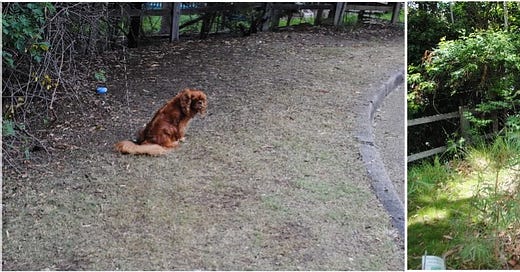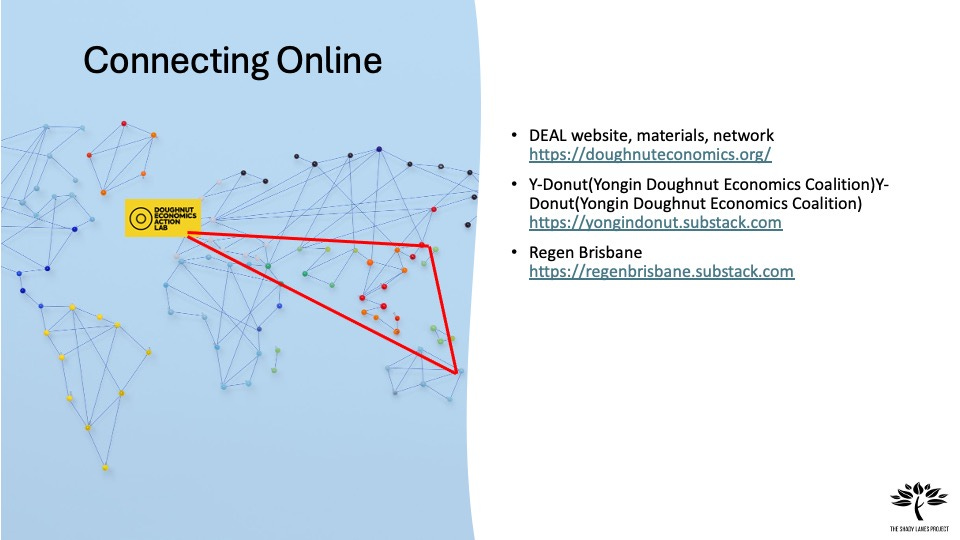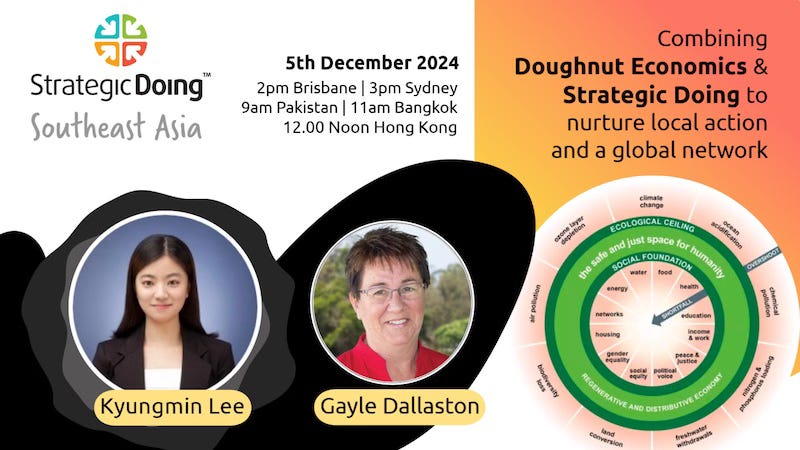Can verge gardens really change the world?
Activists say that action breeds hope. I’d qualify that to say it’s a series of strategic actions and what we do around each action, that inspires and maintains enough hope and energy to keep going.
When I have a bad day, a day where I’ve read too much news, or accidentally waded into the wrong part of the internet, it can seem that the idea that planting a verge garden could change the world seems absurd. Surely we need big actions and big money to tackle big problems.
Of course, any single action and any single verge garden in itself will barely make a dent in the complex problems we face. But every bit makes a difference, and the more bits the better. More importantly, nurturing even a tiny patch of land, seeing the results when we work with nature to increase biodiversity and habitat, helps maintains the hope that we humans can get our act together and the motivation to do our tiny bit.
Activists say that action breeds hope. I’d qualify that to say that a series of strategic actions: starting with what we’ve got; doing what’s doable with the resources at hand; choosing actions that take us towards our long-term aims, are what is needed to maintain enough hope and energy to keep going.
It’s what we do around that activity of verge gardening, and how we use that to build the assets, skills, and networks needed to do much bigger things that makes the big difference. That’s what Shady Lanes is about - not just the single act of gardening on one verge but how we leverage it into the bigger picture of creating a better future.
Or as someone once sang: ‘Tain't What You Do (It's The Way That Cha Do It)
Making Local Connections - On The Verge
Yesterday, I was delighted to get an update from Jim Williams about his verge garden.
Almost three years ago, the Urban Forest team who administer the Brisbane City Council (BCC) verge garden policy passed on my contact details (with permission), and Jim phoned me to complete the triangle. Jim wrote a story about the beginnings of his verge garden, including why and how he was doing it.
Then, a few months ago, the BCC Catchment officers organised an event with bushcare groups from different sides of the city and Jim and I met in person for the first time. Another triangle! That’s when I asked for the update on his verge garden.
Completing these triangles by introducing people who might share an interest, or holding targeted events that bring people together, is an essential part of building open collaborative networks.
Everybody wins and new assets are created. This is regenerative growth and abundance, helping BCC increase their tree canopy and biodiversity targets, and helping Jim and me in our respective endeavours. We are all working in the same direction and although our goals, circumstances, and skills differ, we have a common purpose of working with nature and each other to increase natural habitat and biodiversity.
Check out Jim’s garden at the beginning in 2022, A Bush Block Verge - A Work in Progress, and now in 2024.
Making Global Connections
Earlier this month, I took part in the online day of Global Donut Days 2024 which had the theme: “local action, global connection”. Our presentation was a collaboration between Kyungmin in South Korea, me in Brisbane, Ed Morrison in the USA, and the Doughnut Economics Action Lab (DEAL) team in the UK.
How do we make those connections? The same way we make connections with verge gardens: first by doing small public local actions that show who we are and what we care about. Then we talk publicly about what we are doing so we can all follow trails and close triangles to build more connections and networks.
The DEAL site acts as a hub or node to bring people together, thereby creating the potential for creating triangles.
in South Korea followed the trail through the DEAL website in the UK to read about Regen Brisbane and contacted me in Australia. Used this way, the internet is like the verge: a common space where you can put out your public signpost and invite people to engage in conversation.The thing that draws me to Doughnut Economics is that it forces us to look at the interlinked nature of the issues we face. Put simply, we need to stay within the planetary boundaries while trying to address the multiple Sustainable Development Goals.
“To meet the needs of all people within the means of the living planet”
Even our smallest projects can contribute towards that one shared purpose.
That means creating loose networks to nurture collaborations with people from all walks of life with that overarching purpose in common. It means making connections between diverse people, across sectors and disciplines. What better and more accessible place to learn and practice that than on the verge where all those different users and uses come crashing together?
Kyungmin and I will be doing a similar presentation at the South-East Asia Strategic Doing Hub on December 5th on Combining Doughnut Economics and Strategic Doing to nurture local action and a global network. It’s free to join, bring your curiosity and questions.
Connecting With You
How do you make new connections? Do you have public signposts for people to find you and your group: a verge garden, a profile on DEAL, a Linkedin page, a blog or Substack?
Do you check the likes and comments of posts to find others who share your interests and engage with them?
Let us all know what you do, and why, in the comments - you never know who you will meet up with.
If you just read this and move on, you’ll never know what opportunities you missed to make some triangles.
Read More:







Thanks so much for sharing this Gayle and including your reflections on Global Donut Days. I love your analogy between the verge and the internet "Used this way, the internet is like the verge: a common space where you can put out your public signpost and invite people to engage in conversation." And great to see you've had another event with Kyungmin.
Thanks for another simple insight into the art of connecting. You pose a question about how we find like-minded souls through reading and engaging with people’s comments on posts. I thought everybody did this. I certainly do. I rarely leave an interesting post or story without looking at the comments. And I have found that engaging with authors or other commenters has been a key avenue to building my networks. Sure, I do also read, ‘like’ and move on, but I do very deliberately engage in thoughtful commentary when I’m keen to connect (or at least to explore the possibility and mutuality of connection).
I am also wowed when some authors take the time to thank me (I.e., connect) merely because I ‘liked’ a post. And I am dismayed when an author does not respond to a comment. I don’t see the point in posting about things one considers meaningful and important without engaging with one’s readers.